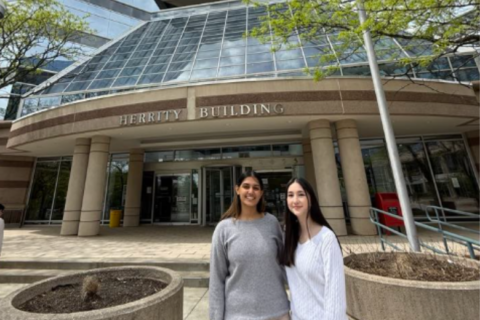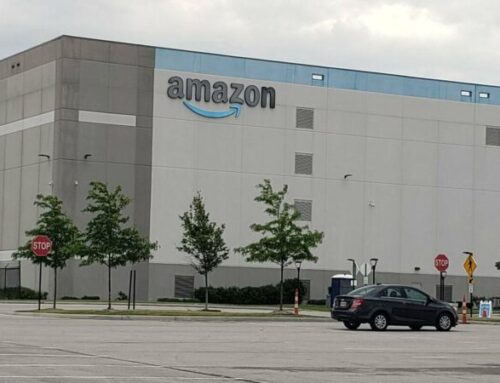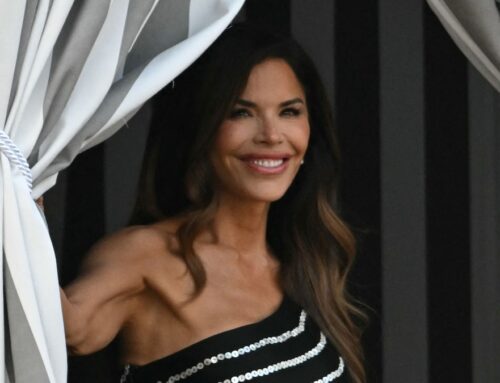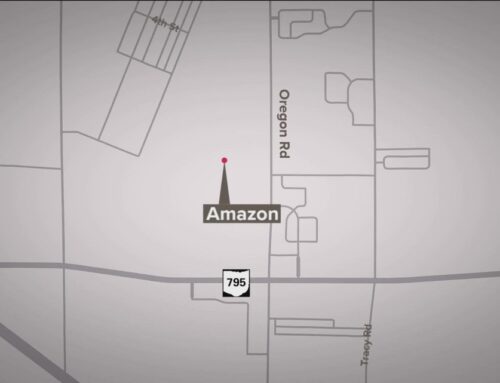Fairfax Co. high schoolers launch podcast to debunk environmental myths
July 3, 2025

Julie Kinkead and Nishka Shah have been friends since elementary school, but it wasn’t until last year that Fairfax County high schoolers decided to combine their love for environmental science with a desire to give back to the community.
The pair had considered launching a podcast to share their ideas, especially because they both enjoy talking to other people, and the idea came to fruition earlier this year. The result is a weekly podcast called “Debunking Earth,” with a new sustainability topic up for discussion every week.
Kinkead, a student at Langley High School, and Shah, a student at Thomas Jefferson High School for Science and Technology, launched the project after watching friends and family members make choices they mistakenly thought were beneficial to the environment.
Now, they’re hoping to equip listeners with the knowledge necessary to prevent that from happening.
“We wanted a way to create something that we could break down these different myths, to use actual research and inform these people on better choices,” Kinkead said.
The first episode came out in March, and discussed the “toxic truth about forever chemicals.” Episodes are usually about 15 to 20 minutes, and topics range from sustainable dieting to plastic consumption.
Conversations are inspired by things they see or think about in their daily lives. An episode about reef-safe sunscreen was born out of Kinkead’s family’s love of beach trips.
“One of my favorite parts is that we were able to explore how, although companies can slap on different products and different labels, it can often still be harmful to the environment, as they can contain different nanoparticles or preservatives that are harmful to the marine ecosystem,” Kinkead said.
Shah’s experiences watching her family buy soaps and shampoos at Whole Foods, meanwhile, encouraged the pair to consider an episode on greenwashing.
“A lot of times this packaging can have kind of green and brown colors to make it look sustainable,” Shah said. “There’s certain fonts that also kind of fit this pattern. But a lot of times it can be really misleading.”
It takes hours to prepare for each episode, and the two divide tasks — for example, reviewing scientific studies and government websites to help ensure the information they’re sharing is unbiased and accurate. They hope the information is easily understandable for students riding the bus to school or commuters in their cars.
“Obviously, you can’t change everything that you use in your life and make a sustainable choice about everything,” Shah said. “But we hope that listeners can at least make some more sustainable decisions.”
Kinkead said the podcast has almost 3,000 listeners across seven states and 700 searches on Spotify. They’re continuing the project this summer with shorter episodes.
“Our purpose is to try to make environmental and different social topics more accessible and accurate to a wide range of audiences, Kinkead said. “Especially in a time where misinformation can be spread around a lot due to social media or other different factors.”
Get breaking news and daily headlines delivered to your email inbox by signing up here.
© 2025 WTOP. All Rights Reserved. This website is not intended for users located within the European Economic Area.
Search
RECENT PRESS RELEASES
Related Post



